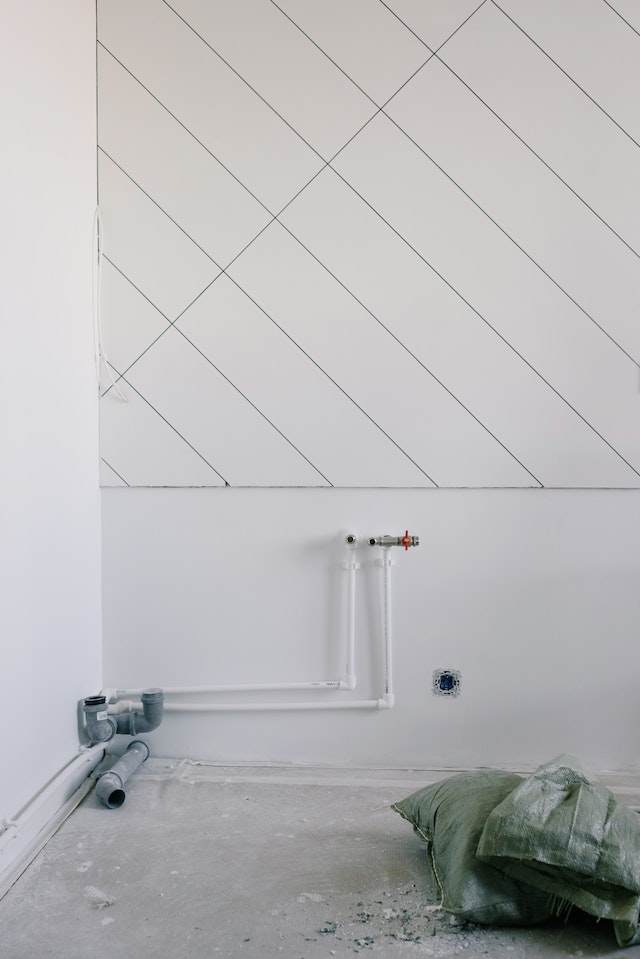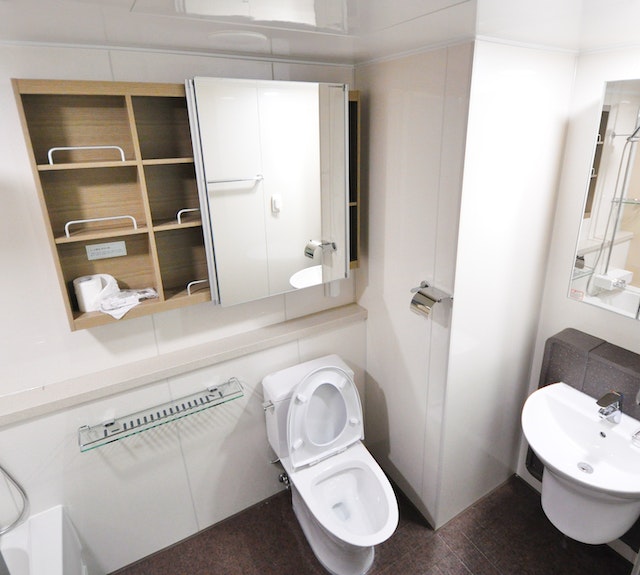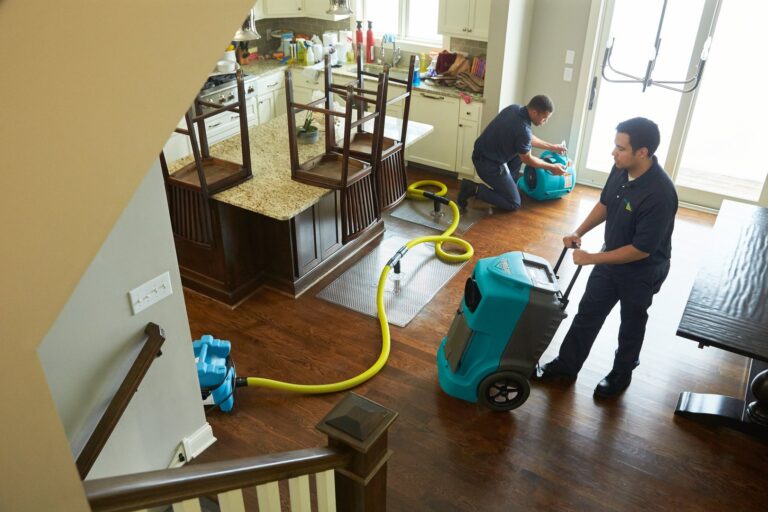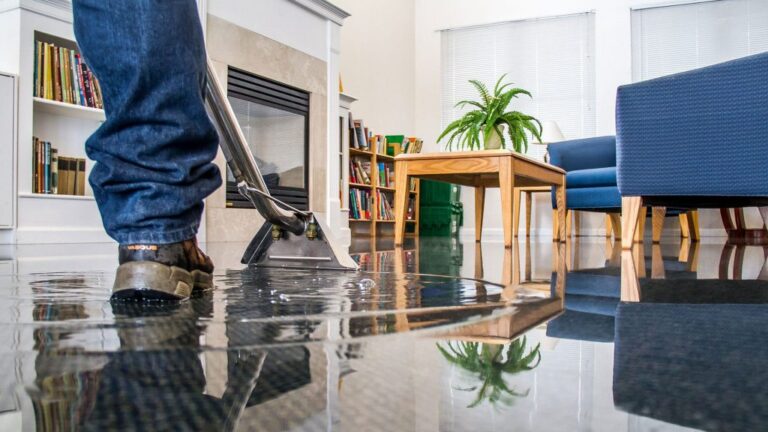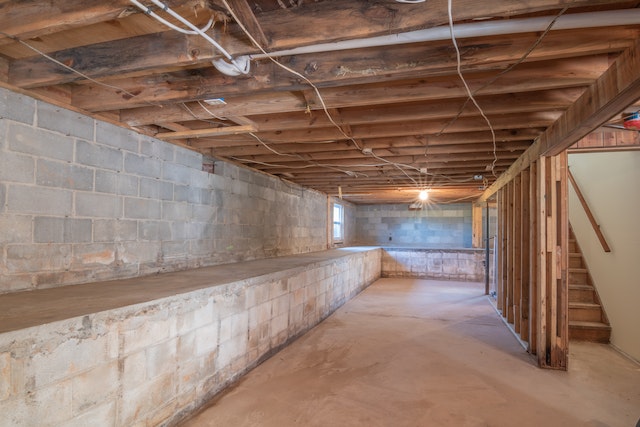You return home to a burst pipe in basement, now what? Taking a few important steps when a pipe bursts can help you minimize damage. A flooded basement requires immediate action to avoid long-term damage, which can lead to thousands of dollars in costs.
This guide will help you deal with a burst pipe while also minimizing the extent of the damage.
Burst Plumbing in the Basement? 8 Steps To Take Now
Following a busted pipe in the basement, you’ll want to take the following steps:
Call a Water Damage Restoration Company
An experienced restoration company can help remove standing water and prevent further damage. Removing water promptly prevents water from soaking into your walls or ceilings. Professional damage restoration companies typically have special equipment and products to promote air flow and help remove water faster.
Even better, a restoration company can help you check off all the necessary tasks on your to-do list. One of the first phone calls that Nashville homeowners with a flooded basement should make is to Nashville Water Damage Restoration, who can help schedule repairs, remove water, prevent mold growth, and file an insurance claim.
Shut Off the Water Supply
Before attempting to fix a pipe, you’ll need to turn off the water supply. You can do this at the main shutoff valve. Don’t forget to turn off all faucets in the home to ensure no water is left in the pipes. This also removes extra pressure, which could cause further damage.
Turn Off the Electricity in the Basement
Water and electricity don’t mix. Turn off all electricity in the basement at the circuit breaker before heading into the flooded basement to attempt repairs or assess the damage.
Repair the Pipes
Repairing the pipe burst is important in ensuring it doesn’t continue flooding after you turn the water back on. First, locate the damage and assess your ability to make repairs.
Sometimes, the problem may be behind a wall. You can identify a busted pipe behind a wall by looking for signs of damage on the exterior walls. You may be able to temporarily fix the pipe until you have time to schedule a professional repair.
Call for Help
If you cannot patch or repair the pipe, you may need to call a professional plumber. A plumber can locate the broken pipe, identify the cause, and quickly make repairs. Your damage restoration company can help you choose the right plumber for the repairs.
Take Note of Damages
After repairing the pipe, it’s time to move on to water remediation. Take note of the damage, including assessing how much water is present and whether spore growth has started. This is also a good time to begin the drying process.
Assess what items must be thrown away and what can be saved. This is also when you want to check the walls for any water that may have spread upwards toward the ceiling. Of course, when you work with a professional remediation company, you can leave this step to the professionals.
Contact the Insurance Company
Notify your insurance company as soon as possible. Many insurance policies cover damages from a flood, but you’ll want to find out the specifics of your policy.
The company will likely require that you send photographs of the damages. In some cases, they may even send out their own inspector to determine what repairs or services are needed.
This is another area in which a professional restoration company can be beneficial, as they can manage communications on your behalf, help you submit your claim, and work closely with the adjustor to ensure all repairs are made properly.
How To Prevent Burst Pipes in Your Basement
After all standing water is removed and repairs are made, it’s time to put a plan in place to prevent your basement from flooding again. While you can’t always prevent all plumbing bursts from happening, preventative maintenance can help minimize your risk. Making timely repairs can also reduce the chances of plumbing problems in the future.
This is also a good time to make any necessary changes to your insurance policy. While many homeowners insurance policies cover water damage, some may have limitations on what they cover.
Tree roots and frozen burst pipes are two of the most common causes of basement floods. Regularly checking trees and shrubs nearby the foundation can help prevent them from growing into the plumbing system.
Common Causes of Pipe Bursts
Understanding some of the most common causes of pipe problems can also help you avoid a flood in the future. Some of the most common causes of water damage in the basement include:
- Unrepaired leaks
- Frozen pipes
- High water flow/pressure
- Accidental damage
- Tree roots
- Damaged walls
Whatever the cause, a plumbing problem can quickly flood your basement and ruin all your belongings.
Is a Pipe Burst an Emergency?
A bursted water pipe can be an emergency. Some pipes may have slow leaks, whereas others may crack and break and cause a lot of excess water to flood into your basement. If you’re not home when flooding happens in the basement, it’s possible that your basement could accumulate a lot of standing water.
Why Work With a Professional After a Burst Pipe?
There are many reasons to consider working with a professional remediation company following a burst pipe in the basement. In addition to guiding you through the stressful task of cleaning up a flooded basement, a professional restoration company helps with filing your insurance claim, collecting estimates, and preserving your personal items.
Professional Mold Removal Services
If it has been more than 48 hours since the bursted pipe, it may be even more important to contact a professional. It takes just 48 hours for mold growth to set in.
Some projects are best handled by professionals, and cleanup following a burst water pipe is one of those. If you’re feeling overwhelmed, consider contacting Nashville Water Damage Restoration to guide you through the delicate cleanup and remediation process.

